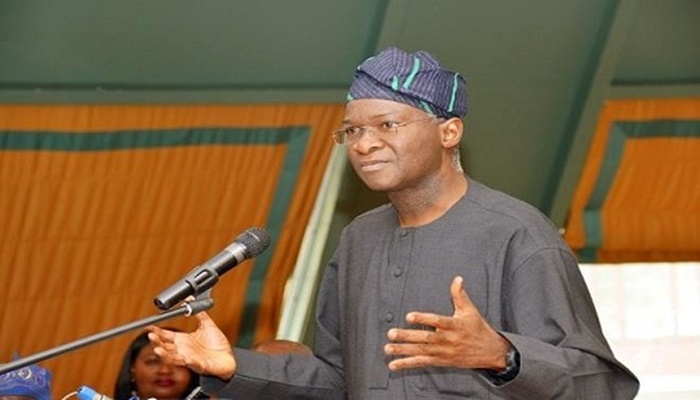
The Federal Government has approved the purchase of three new 150MVA transformers at Shiroro, Ondo and Oshogbo sub-stations even as it has also approved the resuscitation of the National Council on Hydrocarbon
The hydrocarbon council is an ombudsman council that meets once a year, in extraordinary times, to review policies in the oil and gas sector.
The decisions were reached at the Federal Executive Council (FEC) meeting presided over by President Muhammadu Buhari at the Presidential Villa, Abuja on Wednesday.
The Minister of Power, Works and Housing, Mr. Babatunde Fashola, said that the three new transformers would reinforce, expand and maintain the existing transmission capacity.
He explained that the Transmission Company of Nigeria (TCN), which is the manager of the transition system, is the transporter of electricity as it provides service to the generation companies, from whom they evacuate power and to the distribution companies, to whom they deliver power, adding that the TCN needed the transformers to boost its capacity.
According to him, “We presented that memo to council and it was approved. The purpose is to continue to reinforce, to expand and to maintain the existing transmission capacity so that as the progress of our incremental power initiative expands and achieves its purpose, the Transmission Company is able to competently deliver the power”.
Speaking on the state of roads in the country, he said: “When we set out last year on assumption of office, I made it very clear what the liabilities that we had were, we had to deal with contracts valued in the region of about N2 trillion or N2.2 trillion that had been awarded before we came. There were debts owed to those contractors, there were liabilities to complete them in the region of about N1.5 trillion.
“Now, the budget that we have for the three ministries that I superintend is in the region of N400 billion and over N200 billion is dedicated to roads across the country. So that is the deficit that we have to deal with and in making those choices, we then have to deal not with roads that necessarily bother us but roads that carry the heaviest traffic.
“We have provided a three-year plan to begin to address the roads but they are subject to the appropriation we receive and once a road is not appropriated for, you can’t spend money on it, it is a violation of the laws of this country and you will be penalised for it and I won’t breach the law. So I am limited by what I am authorised to do when appropriation comes,” he stated.
Fashola further stated: “Let me reiterate the fact that these roads did not go bad yesterday, they deteriorated progressively over the years, at a period when we had resources and did not address the problem. What we have done was first to say that we would not award any new road contract, we would deal with the over 206 roads that have been awarded but not funded for over three years.
“Again in making those choices, what you need to understand is that most federal roads are very long roads, they stretch over hundreds of kilometers. Therefore, the inherited practice was to break them into sections and award to different contractors.”
Elaborating on the hydrocarbon council, Minister of State for Petroleum Resources, Ibe Kachikwu, said: “It should be a gathering of people from the business, oil sector, oil communities and ministries that are directly or indirectly affected by the policies we roll out in the ministry.”
He further stated that the council had been in existence but in the last couple of years, went into oblivion but had now been revived with the council’s approval.
“The criticality is that as we continue the dialogue we have been having with militants, creating such a fora enables anybody who has an interest in the area to converge and develop the thinking process that will guide policies in this sector,” he added.
On the China road show the government embarked on in July, where Nigeria signed a $75.6 billion Memorandum of Understanding in investments in the oil sector, Kachikwu said it was already yielding expected results as Nigeria was expecting a loan facility of close to $4 billion from China.
According to him, a 40-man Chinese investment team was scheduled to arrive the country at the end of the month, as part of long-term strategic collaborations between the two countries.
“That is still work in progress; we are having a team of over 40 Chinese in Nigeria by the end of this month. We are also setting up a full inter-ministerial panel that will be deliberating with them for each of those sectoral investments.
“I will say that the target we had while going to China was to raise $40 billion, which is the total cost of our infrastructural gap for the oil industry. We raised about $75.6 billion, $69 billion of which was NNPC and government-related potential investments and loans, and the rest directly related to the private sector. If we get even 20 per cent of that, it will be a major achievement for us.
“I will say we have one-year period to work on this. We expect that some will come earlier; there are some facility lines that are almost readily available — close to about $3 or $4 billion — but the investment packages will take us time. This is different from the pledges that were made when the president visited China, which was an all African type front basis; this is completely separate,” Kachikwu stated.






